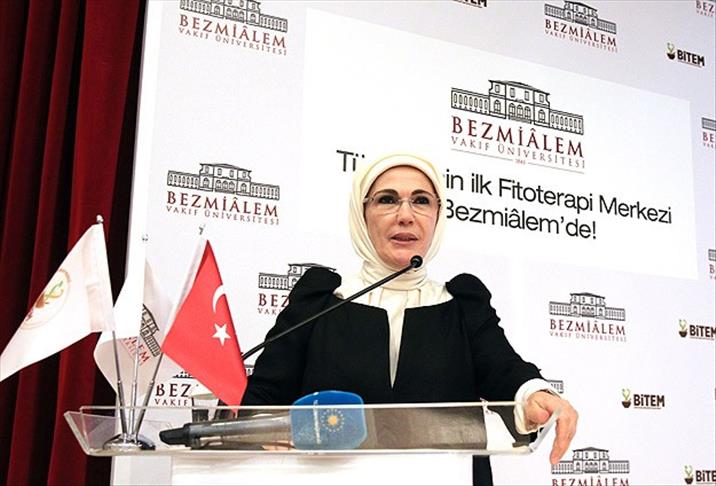
ISTANBUL
Turkey’s first dedicated phytotherapy – modern herbal remedy – center was opened in Istanbul on Monday.
The center – which was unveiled by President Recep Tayyip Erdogan's wife Emine Erdogan – is in Bezmialem Foundation University, and aims to analyze medicinal plants, perform quality controls and will later develop raw materials from herbs to be used in the pharmaceutical, food and cosmetics industries.
The Turkish Phytotherapy Center also plans to train doctors and chemists and to raise awareness about herbal treatments.
Turkey is thought to be among the richest countries in the world in terms of having endemic plants. It has over 12,000 plant species and around 3,500 of these are endemic, according to the country’s Agriculture Ministry. The country's herbal products market is valued at around $5 billion.
“However rich the plant species in our country, unfortunately we have not benefited from this enough. One of the aims of this project is to revive this value [herbal medicine industry],” said Professor Murat Kartal, project manager from the Pharmacy Faculty of Bezmialem University.
“By opening this center, we’ve taken an important step to becoming the world’s number one herbal raw material and medicine center, when we consider our plant diversity and closeness to Europe," he added.
Fellow faculty member, Professor Gulacti Topcu, also stressed the importance of benefiting from Turkey’s plant diversity, stating that the main sources of the most important medicines, including morphine, aspirin or lipoxin, are herbal.
"With training programs [in the center], we will give the necessary support to doctors, chemists, pharmaceutical industry, herbal producers and all the people in this field," she added.
In her speech, Emine Erdogan underlined the importance of translating of old scientific books into Turkish to make progress in phytotherapy. Erdogan announced that she would start work on having 13th-century botanist and scientist Ibn al-Baitar's writings on herbal treatment translated into Turkish.
Plants are the roots of today's drugs and pills, and people across the world were – and some are still – using them to heal wounds or to end everyday complaints like stomach pain or toothache.
The global herbal remedies market has been enhancing every year. The market has been predicted to reach a value of US$107 billion by the year 2017, according to a report by California-based Global Industry Analysts, Inc.
Anadolu Agency website contains only a portion of the news stories offered to subscribers in the AA News Broadcasting System (HAS), and in summarized form. Please contact us for subscription options.

